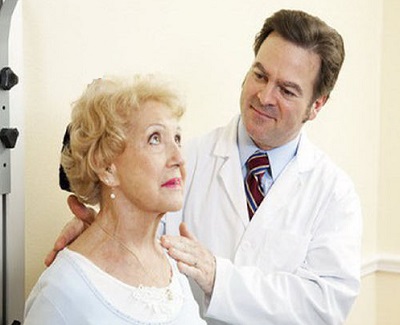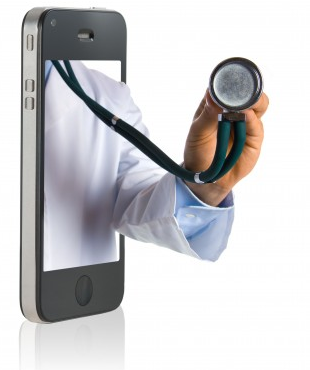There are some considerable advantages to wearables and they are becoming increasingly obvious.
With all the different DIY monitors and devices that patients have to use at home – which now include wearable technology in many different forms – the shape of the relationship between doctors and patients is starting to change, as is the care available from doctors and the care patients can provide themselves.
Blood pressure and glucose monitors, fitness bands, and other devices make tracking easier.
Wearable technology has pushed this trend forward very quickly, as wristbands and smartwatches offer sensors that can perform functions such as heartbeat and blood pressure tracking, sleep tracking, activity tracking and a range of other capabilities. Not only is it giving patients the ability to better understand the functions of their body systems, over time, but according to Yale University medical professor, Stephen Huot, doctors are already starting to see the benefits of the use of these wearables.
This helps to explain why so many people are using wearable technology and why this trend is growing.
 In 2012, Pew Research Center conducted a nationwide survey that determined that even by that time, 69 percent of adults were monitoring at least one indicator of health and wellness. These included diet, weight or exercise. Among them, 21 percent said that they were using a form of technology to be able to track that particular indicator. That said, Pew now projects that as weareables become more readily available, it will skyrocket in popularity, to the point that people will be commonly using wearable or even embedded devices by 2025.
In 2012, Pew Research Center conducted a nationwide survey that determined that even by that time, 69 percent of adults were monitoring at least one indicator of health and wellness. These included diet, weight or exercise. Among them, 21 percent said that they were using a form of technology to be able to track that particular indicator. That said, Pew now projects that as weareables become more readily available, it will skyrocket in popularity, to the point that people will be commonly using wearable or even embedded devices by 2025.
Pew also explained in the report on its research that among the survey participants, 46 percent felt that their behaviors in tracking their health indicator(s) had altered their overall approach to a healthful lifestyle or toward someone else for whom they were providing care. Furthermore 40 percent of the survey participants said that the data they had collected by tracking had driven them to pose new and different questions to their doctors, or had even encouraged them to obtain a second opinion.
For this reason, doctors are increasingly prescribing the use of wearable technology, particularly for monitoring certain chronic conditions, such as patients with diabetes.
These devices are being implemented in Sri Lanka as a type of preventative effort in animal-borne diseases.
A new program is being implemented called the Sri Lankan Wildlife Health Centre that will be using mobile technology through the co-funding of the International Development Research Centre (IDRC) in order to be able to monitor the health of animals.
The idea is to be able to prevent the outbreak of disease and to detect it if it happens.
Part of the goal of this effort is also to be able to broaden the role of Sri Lankan veterinarians so that they can move into zones such as farm practices and antibiotic resistance. Mobile technology is going to play an integral role in this effort. The reason is that in the country, mobile phones are a great deal more than simply a way to communicate with other people and surf the internet. In the case of field veterinarians, for instance, it expands their resources considerably because they would otherwise be quite limited. With the tech, though, they can track infectious disease outbreaks within animals.
Using this mobile technology system, it allows for a considerably faster response to infections as they emerge.
 The earlier veterinarians can take action in this type of issue, the better the chance they have at saving lives. The reason that this is important is that outbreaks of infectious diseases in animals makes up 60 to 75 percent of all emerging infectious diseases. Therefore, by reducing the spread of disease while it is still in animals, it plays a meaningful role in being able to reduce the exposure to humans.
The earlier veterinarians can take action in this type of issue, the better the chance they have at saving lives. The reason that this is important is that outbreaks of infectious diseases in animals makes up 60 to 75 percent of all emerging infectious diseases. Therefore, by reducing the spread of disease while it is still in animals, it plays a meaningful role in being able to reduce the exposure to humans.
As many of the countries where these types of disease outbreak are problematic are also countries that have limited resources to control them, this new system using mobile devices is meant to overcome that barrier and become an integral component of public health.
Mobile technology is now one of the various elements that are being tested for the improvement of the veterinary public health system in Sri Lanka. These types of system monitor disease outbreaks in animals despite the slim resources that they have. The researchers in the current team are looking into novel methods of engagement of locals in disease detection and prevention, governance of veterinary public health, training public health leaders, and connecting national and local officials.
 In 2012, Pew Research Center conducted a nationwide survey that determined that even by that time, 69 percent of adults were monitoring at least one indicator of health and wellness. These included diet, weight or exercise. Among them, 21 percent said that they were using a form of technology to be able to track that particular indicator. That said, Pew now projects that as weareables become more readily available, it will skyrocket in popularity, to the point that people will be commonly using wearable or even embedded devices by 2025.
In 2012, Pew Research Center conducted a nationwide survey that determined that even by that time, 69 percent of adults were monitoring at least one indicator of health and wellness. These included diet, weight or exercise. Among them, 21 percent said that they were using a form of technology to be able to track that particular indicator. That said, Pew now projects that as weareables become more readily available, it will skyrocket in popularity, to the point that people will be commonly using wearable or even embedded devices by 2025.
 The earlier veterinarians can take action in this type of issue, the better the chance they have at saving lives. The reason that this is important is that outbreaks of infectious diseases in animals makes up 60 to 75 percent of all emerging infectious diseases. Therefore, by reducing the spread of disease while it is still in animals, it plays a meaningful role in being able to reduce the exposure to humans.
The earlier veterinarians can take action in this type of issue, the better the chance they have at saving lives. The reason that this is important is that outbreaks of infectious diseases in animals makes up 60 to 75 percent of all emerging infectious diseases. Therefore, by reducing the spread of disease while it is still in animals, it plays a meaningful role in being able to reduce the exposure to humans.